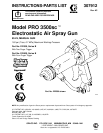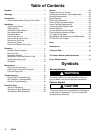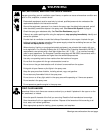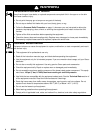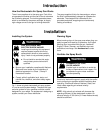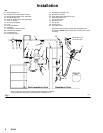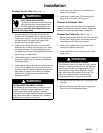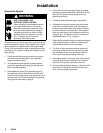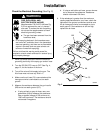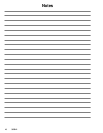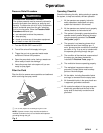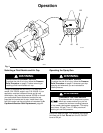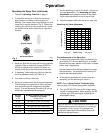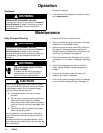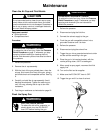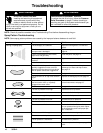
307912 3
WARNING
FIRE, EXPLOSION, AND ELECTRIC SHOCK HAZARD
Improper grounding, poor air ventilation, open flames, or sparks can cause a hazardous condition and
result in a fire, explosion, or electric shock.
D Electrostatic equipment must be used only by trained, qualified personnel who understand the
requirements stated in this instruction manual.
D Ground the equipment, personnel in or close to the spray area, the object being sprayed, and all
other electrically conductive objects in the spray area. See Ground the System on page 8.
D Check the spray gun resistance daily. See Test Gun Resistance, page 19.
D If there is any static sparking while using the equipment, stop spraying immediately. Identify and
correct the problem.
D Provide fresh air ventilation to avoid the buildup of flammable or toxic vapors. Interlock the gun
turbine air supply to prevent operation of the power supply unless the ventilating fans are on. See
Ventilate the Spray Booth on page 5.
D When cleaning, flushing, or purging electrostatic equipment, use solvents that comply with your
local regulations. For countries following the U.S. National Fire Protection Association (NFPA) 33
requirements, use solvents with a flash point higher than 100_ F (38_ C) or a solvent normally
used in spray operations. For European Countries complying with EN 50053, use solvents with a
flash point as high as possible and higher than the ambient temperatures.
D Use only non-sparking tools to clean residue from the booth and hangers.
D Do not flush the system with the gun electrostatics turned on.
D Do not turn on the gun electrostatics until all solvent is removed from the system.
D Extinguish all open flames or pilot lights in the spray area.
D Keep the spray area free of debris, including solvent, rags, and gasoline.
D Do not store any flammable fluids in the spray area.
D Do not turn on or off any light switch in the spray area while operating or if fumes are present.
D Do not smoke in the spray area.
D Do not operate a gasoline engine in the spray area.
TOXIC FLUID HAZARD
Hazardous fluids or toxic fumes can cause a serious injury or death if splashed in the eyes or on the
skin, swallowed, or inhaled.
D Know the specific hazards of the fluid you are using. Read the fluid manufacturer’s warnings.
D Store hazardous fluid in an approved container. Dispose of the hazardous fluid according to all
local, state, and national guidelines.
D Wear appropriate protective clothing, gloves, eyewear, and respirator.
Warnings are continued on the next page.



